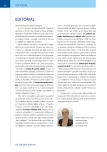-
Medical journals
- Career
EARLY POSTOPERATIVE COMPLICATIONS AFTER RADICAL CYSTECTOMY WITH ORTHOTOPIC BLADDER SUBSTITUTION
Authors: David Míka 1,2; Ondřej Havránek 1,2; David Němec 1,2; Radek Sýkora 1,2; Libor Luňáček 1,2; Jan Krhut 1,2
Authors‘ workplace: Urologické oddělení FN Ostrava 1; Katedra chirurgických oborů Ostravské univerzity Ostrava 2
Published in: Ces Urol 2016; 20(2): 148-153
Category: Original Articles
Overview
Aim:
The use of standardized methods assessing perioperative complications after a radical cystectomy is necessary for objective evaluation of the morbidity associated with surgery. The Clavien - Dindo classification is nowadays widely used to assess the degree of complications.Material and method:
We evaluated retrospectively a set of 18 consecutive patients, who underwent radical cystectomy with orthotopic bladder Mansoura pouch substitution between 2010 and 2012. We classified the early postoperative complications within 30 and 90 days after surgery using Clavien-Dindo system.Results:
Average age of patients included in the study was 56.6 years (31–70). All patients underwent an orthotopic antireflux urinary diversion usually called Mansoura pouch. The average length of hospitalization was 25.8 days (17–60). Within 30 days after surgery, we identified 5 patients with complications of the Clavien type I, 8 patients with complications of Clavien type II, 1 patient with Clavien type IIIa, 3 patients with Clavien type IIIb, and 1 patient as Clavien type IVb. Within the 90-day evaluation 12 patients were classified as Clavien type I, 3 patients as Clavien type II, 2 patients as Clavien type IIIb, and 1 patient as Clavien type V.Conclusions:
Radical cystectomy is currently the only curative treatment modality of muscleinvasive bladder cancer. Significant morbidity and mortality is in relation to the technical complexity of this kind of surgery, especially in the case of orthotopic diversion. Exact standardized classification of the possible complications allows comparison of results of individual departments and their individual techniques.Key words:
Clavien-Dindo system, urinary bladder cancer,” - Mansoura pouch”, orthotopic substitution of the urinary bladder, radical cystectomy.
Sources
1. Stein JP, Lieskovsky G, Groshen S, et al. Radical cystectomy in the treatment of invasive bladder cancer: long-term results in 1,054 patients. J. Clin. Oncol. 2001; 19 : 666–675.
2. Pawlik K. Exstirpace močového měchýře. Čas Lék čes 1890; 29 : 705–706.
3. Jarolím L, Babjuk M, Hanuš T, Janský M, Skřivanová. Ortotopická náhrada močového měchýře u ženy po cystektomii se zachováním funkční uretry. Rozhl Chir 1996; 75 : 222–226.
4. Jarolím L, Babjuk M, Hanuš T, Janský M, Skřivanová. Female urethra sparing cystectomy and orthotopic bladder replacement. Eur Urol 1997; 31(2): 173–177.
5. Novara G, De Marco V, Aragona M, et al. Complications and mortality after radical cystectomy for bladder transitional cell cancer. J. Urol. 2009; 182 : 914–921.
6. Novotny V, Hakenberg OW, Wiessner D, et al. Perioperative complications of radical cystectomy in a contemporary series. Eur. Urol. 2007; 51 : 397–402.
7. Donat SM. Standards for surgical complication reporting in urologic oncology: time for a change. Urology 2007; 69 : 221–225.
8. Dindo D, Demartines N, Clavien PA. Classification of surgical complications. Ann. Surg. 2004; 240 : 205–213.
9. Abol-Enein H, Ghoneim MA. Further clinical experience with the ileal W-neobladder and a serous-lined extramural tunnel for orthotopic substitution. Br J Urol. 1995; 76(5): 558–564.
10. De Nunzio C, Cindolo L, Leonardo C, et al. Analysis of radical cystectomy and urinary diversion complications with the Clavien classification system in an Italian real life cohort. Eur J Surg Oncol. 2013; 39(7): 792–8.
11. Iglesias DA, Westin SN, Rallapalli V, et al. The effect of body mass index on surgical outcomes and survival following pelvic exenteration. Gynecol Oncol. 2012; 125(2): 336–342.
12. Cody JD, Nabi G, Dublin N, et al. Urinary diversion and bladder reconstruction/replacement using intestinal segments for intractable incontinence or following cystectomy. Cochrane Database Syst Rev. 2012 15;2:CD003306. doi: 10.1002/14651858.CD003306.pub2. Review.
13. Hautmann RE, Abol-Enein H, Hafez K, et al. Urinary diversion. World Health Organization (WHO) Consensus Conference on Bladder Cancer, Urology. 2007; 69(Suppl. 1): 17–49. Review.
14. Abol-Enein H, Salem M, Mesbah A, et al. Continent cutaneous ileal pouch using the serous lined extramural valves. The Mansoura experience in more than 100 patients. J Urol. 2004; 172(2): 588–591.
15. Abol-Enein H, Ghoneim MA. Functional results of orthotopic ileal neobladder with serous-lined extramural ureteral reimplantation: experience with 450 patients. J Urol. 2001; 165(5): 1427–1432.
16. Türkölmez K, Baltaci S, Göğüş C, Bedük Y, Göğüş O. Results of the ureteral reimplantation with serous-lined extramural tunnel in orthotopic ileal W-neobladder. Int J Urol. 2004; 11(6): 368–373.
Labels
Paediatric urologist Nephrology Urology
Article was published inCzech Urology

2016 Issue 2-
All articles in this issue
- LAPAROSCOPIC URETERAL REIMPLANTATION – VIDEO
- LAPAROSCOPIC RADICAL CYSTECTOMY – VIDEO 2015
- ROBOT ASSISTED PERFORMANCES IN ANDROLOGY
- NEPHROBLASTOMA – CURRENT EVALUATION AND TREATMENT
- ARTEFICIAL SOMATO-CNS-AUTONOMIC MICTURITION REFLEX – EXPERIMENTAL VERIFICATION
- EARLY POSTOPERATIVE COMPLICATIONS AFTER RADICAL CYSTECTOMY WITH ORTHOTOPIC BLADDER SUBSTITUTION
- APLICATION OF DETOUR EXTRA-ANATOMIC STENT AFTER DESINTEGRATION LEFT URETEROINTESTINAL ANASTOMOSIS
- THE CONSEQUENCES OF PENILE SUBCUTANEOUS APPLICATIONS OF THE FOREIGN MATERIALS
- PROFESSOR TOMÁŠ HANUŠ, M.D., DrSc., CELEBRATES HIS BIRTHDAY
- CONGRESS REPORT – 4TH CZECH VIDEO-TUTORIAL 2016
- THE 2ND UROLOGY-NEUROLOGY SYMPOSIUM IN OSTRAVA
- A REPORT FROM THE 37TH WORKING DAYS OF PAEDIATRIC NEPHROLOGY AND THE 27TH ANNUAL MEETING OF PAEDIATRIC UROLOGISTS
- KNOU 2016 – COMPREHENSIVE NEWS IN ONCOLOGICAL UROLOGY
- PROF. MICHAL HORŇÁK, M.D., DRSC. A LEADING SLOVAK UROLOGIST, PASSED AWAY
- KEY UROLOGICAL SURGICAL PROCEDURES IN THE CZECH REPUBLIC IN PERIOD 2009–2014
- BLACK ADENOMA OF THE ADRENAL GLAND
- Czech Urology
- Journal archive
- Current issue
- Online only
- About the journal
Most read in this issue- THE CONSEQUENCES OF PENILE SUBCUTANEOUS APPLICATIONS OF THE FOREIGN MATERIALS
- NEPHROBLASTOMA – CURRENT EVALUATION AND TREATMENT
- BLACK ADENOMA OF THE ADRENAL GLAND
- KEY UROLOGICAL SURGICAL PROCEDURES IN THE CZECH REPUBLIC IN PERIOD 2009–2014
Login#ADS_BOTTOM_SCRIPTS#Forgotten passwordEnter the email address that you registered with. We will send you instructions on how to set a new password.
- Career

